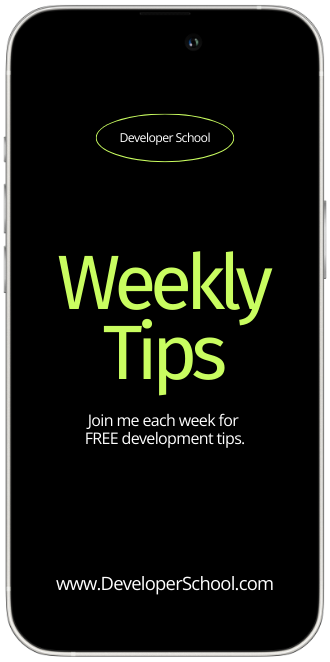4 Things Industry 4.0 -- Nov. 27th, 2023
https://techcrunch.com/2023/11/22/googles-bard-ai-chatbot-can-now-answer-questions-about-youtube-videos/
Presented By 
Good morning, Digital Pioneers!
Don't worry, we're not opening with another line about your morning coffee. With Thanksgiving last week in the US, we want to give thanks to this incredible community we've over the last several years. Together, we're helping to change the manufacturing industry for the better. We also want to say that we hope all our fellow Americans had a wonderful Thanksgiving.
Now, with our Thanksgiving leftovers safely stored away, it's time to flex your fingers for Cyber Monday, a day Neuralink Secures $43 Million in Additional Funding Amidst Controversy: Neuralink, the brain implant startup co-founded by Elon Musk, has quietly raised an additional $43 Million, elevating its venture capital to $323 Million. Their brain-signal-reading implant technology, which recently received FDA approval for human trials, is facing increased scrutiny over alleged unethical research practices and a toxic work environment. Despite these allegations, they still have funds coming in to further their research.
Google's Bard can now interact with YouTube: Google's Bard can now answer questions about YouTbe video content directly. Initially, Bard could only analyze YouTube videos for basic queries, but can now provide specific answers to content-related questions. This will allow users to inquire about specific details such as a recipe in a cooking video or identifying locations in travel videos. Users can also ask Bard to summarize video comments and is now accessible to teenagers worldwide. where we all skim through Amazon hoping to find that GPU we've been wanting on sale! If you stumble upon an irresistible tech deal, don't forget to share them in the #general channel in the Industry 4.0 Discord server so the rest of us can hop on it.
We also love the feedback you guys have given us since we started this newsletter. If there's anything you'd like us to include, or have suggestions, you can reply to this email with your suggestions and we will receive them.
Now let's get cracking into the headlines, because it was quite a busy week...
U.S. Chip Restrictions on China: Balancing National Security and AI Innovation

The U.S. has imposed chip restrictions on China, reflecting a complex interaction between national security concerns and the progression of AI technology. While the restrictions aim to protect sensitive technologies, they present a challenging reality for AI startups in contrast to larger tech entities.
Impact on AI Startups and Industry Giants The chip export controls are particularly burdensome for AI startups, which often rely on advanced semiconductor technology. These startups face significant hurdles in accessing the necessary hardware, a challenge not as pronounced for larger, more resource rich tech companies. This disparity highlights a growing divide within the AI industry, where smaller, innovative players are disadvantaged in the current geopolitical environment.
National Security Concerns Behind the Restrictions The U.S. government's decision to restrict chip exports to China is rooted in national security concerns. The aim is to prevent China from accessing and potentially repurposing advanced semiconductor technology in ways that could undermine U.S. interests or global security. This approach reflects the ongoing tension between protecting national security and fostering a globally collaborative and innovative technological ecosystem. This only works to further solidify the notion that, even in this case where governmental restrictions due to national security concerns may be warranted, legislation and government regulation are the killers of innovation. In this scenario, it is a fine tightrope we have to walk to navigate these issues, without nailing shut the coffin of the small startups, who will ultimately bear the brunt of this blow.
Broader Implications for Global AI Development These restrictions have far-reaching implications for the global AI landscape. They not only impact China's technological capabilities but also potentially slow down the pace of AI innovation worldwide. Startups are crucial drivers of new ideas and technologies in AI, and their constrained growth could impede overall progress in the field. This situation highlights the need for a balanced approach that addresses security concerns while supporting the open and collaborative nature essential for technological advancement.
NVIDIA Pivots in Response to US Chip Restrictions

In a move that emphasizes the rippling effects of the recent US chip restrictions on China, NVIDIA has delayed the launch of a new AI chip tailored for the Chinese market. This decision is a direct consequence of the US's stringent stance on chip exports aimed at curbing China's technological advancement in sensitive areas. This strategic shift reflects NVIDIA's effort to comply with new regulations while maintaining its market presence in China.
Linking to the Larger Picture
This development follows the US's recent chip restrictions, as discussed previously, highlighting the growing geopolitical tensions in the tech sector. The US's measures, aimed at protecting national security and maintaining technological supremacy, are reshaping the global semiconductor industry. This policy shift is not just about national security but also about influencing the global balance of technological power, affecting companies and economies worldwide.
NVIDIA's Adaptation and Future Prospects
NVIDIA's delay in launching its China-focused AI chip is a strategic adaptation to the evolving regulatory environment. While this move reflects the immediate challenges posed by the US chip ban, it also signals a broader shift in the semiconductor industry, where companies must navigate complex geopolitical dynamics. The delay represents a cautious approach by NVIDIA, balancing compliance with US regulations and its business interests in China. As the situation unfolds, NVIDIA's response will be a key indicator of how major tech players adjust to these new global realities.
AWS Cloud Institute Attempts to Bridge the Tech Talent Gap
In an innovative response to the escalating tech talent shortage, Amazon Web Services (AWS) has unveiled the AWS Cloud Institute. This initiative represents a strategic effort to mitigate the growing gap in cloud computing expertise. The institute is set to offer a range of educational programs and training modules, tailored to equip individuals with essential cloud computing skills. These programs are designed to cater to various levels of expertise, from beginners to advanced practitioners, with the goal of ensuring a broad and inclusive approach to skill development.
The AWS Cloud Institute's curriculum is expected to cover key areas such as cloud architecture, data analytics, and machine learning, aligning with the industry's most sought-after skills. By providing accessible and comprehensive training, AWS aims to empower a new generation of cloud professionals, ready to tackle the challenges of a cloud-centric digital economy.
Expected Impact on the Industry
The launch of the AWS Cloud Institute is poised to have a significant impact on the tech industry. By addressing the critical shortage of cloud computing skills, AWS is not only enhancing the talent pool but also potentially accelerating innovation and growth across various sectors. As we have said many times, and continue to stress, education is the foundation for success in digital transformation, and Industry 4.0. Companies relying on cloud technologies will benefit from a larger, more skilled workforce, enabling them to implement more advanced and efficient cloud solutions. Additionally, this initiative could stimulate competition among other tech giants to invest in similar training programs, further enriching the industry's talent base. Hopefully, this will lead to a broad knowledge base, and not an attempt by AWS to drive people to solely their solutions. In the long term, the AWS Cloud Institute could play a pivotal role in shaping a more robust and dynamic cloud computing environment. Something that the realm of higher education has failed extensively to do.
Anthropic's Claude 2.1 vs. OpenAI’s ChatGPT 4: How does it measure up?

In the wake of OpenAI's leadership debacle, Anthropic's has released a noteworthy development in their AI LLM Claude 2.1. This model build upon the foundations laid by introducing new capabilities:
- Language Comprehension: Claude 2.1 aims to demonstrate enhanced language understanding, with hopes of making it more accurate and less prone to "hallucinations" compared to GPT-4. While quantifying this improvement can be challenging, Claude 2.1 aims to generate more contextually relevant responses and raise doubts when unsure if it's correct.
- Context Window: One of the most significant advancements in Claude 2.1 is its expanded context window. While GPT-4 has a 128,000-token window, Claude 2.1 boasts an impressive 200,000-token window. This means Claude can "read" and process more extensive documents or codebases, potentially leading to more comprehensive and context-aware responses.
- Tool Utilization: Claude 2.1 has gained the ability to utilize external tools effectively. When faced with questions or commands for which it lacks answers, Claude 2.1 can now interact with web interfaces and leverage APIs to retrieve information from other models or databases that possess the required knowledge.
These advancements in Claude 2.1 put more pressure on OpenAI, who still continues to dominate the AI market. While OpenAI has spent the last week being shaken up with it's leadership fiasco, it's competitors are continuing to make moves to unseat them from their pedestal.
News We're Tracking
- Neuralink Secures $43 Million in Additional Funding Amidst Controversy: Neuralink, the brain implant startup co-founded by Elon Musk, has quietly raised an additional $43 Million, elevating its venture capital to $323 Million. Their brain-signal-reading implant technology, which recently received FDA approval for human trials, is facing increased scrutiny over alleged unethical research practices and a toxic work environment. Despite these allegations, they still have funds coming in to further their research.
- Google's Bard can now interact with YouTube: Google's Bard can now answer questions about YouTube video content directly. Initially, Bard could only analyze YouTube videos for basic queries, but can now provide specific answers to content-related questions. This will allow users to inquire about specific details such as a recipe in a cooking video or identifying locations in travel videos. Users can also ask Bard to summarize video comments and is now accessible to teenagers worldwide.
Byte-Sized Brilliance
The First Assembly Line!
This Friday, December 1st, marks 110 years since Ford Motor Company's implementation of the assembly line, kicking off the 2nd industrial revolution. Ford went from producing 2 Model Ts per day, to 1 Model T every 93 Minutes! Talk about an efficiency gain!

